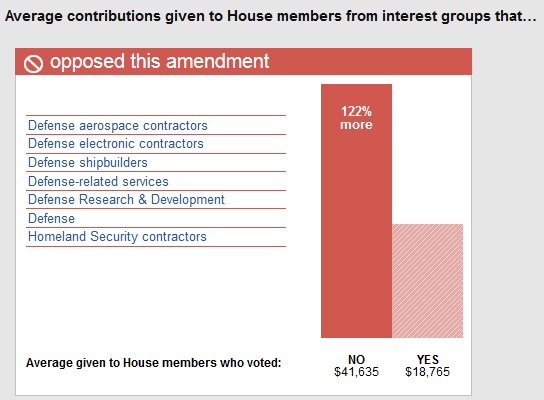Charles Krauthammer on the differing aims of the President and the congressional Republicans over sequestration:
“The worst-case scenario for us,” a leading anti-budget-cuts lobbyist told The Washington Post, “is the sequester hits and nothing bad really happens.”
Think about that. Worst case? That a government drowning in debt should cut back by 2.2 percent — and the country survives. That a government now borrowing 35 cents of every dollar it spends reduces that borrowing by two cents “and nothing bad really happens.” Oh, the humanity!
A normal citizen might think this a good thing. For reactionary liberalism, however, whatever sum our ever-inflating government happens to spend today (now double what Bill Clinton spent in his last year) is the Platonic ideal — the reduction of which, however minuscule, is a national calamity.
Or damn well should be. Otherwise, people might get the idea that we can shrink government, and live on.
Hence the president’s message. If the “sequestration” — automatic spending cuts — goes into effect, the skies will fall. Plane travel jeopardized, carrier groups beached, teachers furloughed.
The administration has every incentive to make the sky fall, lest we suffer that terrible calamity — cuts the nation survives. Are they threatening to pare back consultants, conferences, travel and other nonessential fluff? Hardly. It shall be air-traffic control. Meat inspection. Weather forecasting.
Update: Mark Steyn was a guest on the Hugh Hewitt show the other day to talk about this:
I’m not big on those Mayan guys, but those Mayan guys only hold an apocalypse every few thousand years. Washington now has a Mayan apocalypse every six weeks, whether it’s the fiscal cliff or the debt ceiling, or now the sequestration. And as you say, it’s talking about $44 billion dollars, or about what the United States government borrows, borrows every nine days, every nine days. So in other words, we’ve just spent weeks talking about nine days’ worth of borrowing, which in any eventual deal isn’t actually going to be saved anyway, because the latest deficit reduction bill actually increases the deficit, because that’s just the way Washington works.
[. . .]
Yeah, and you know what’s crazy about this is that let’s pretend that the officials who are speaking on this, the cabinet secretaries who are coming out and telling us that the world will come to an end tomorrow, that the planes are going to be dropping from the skies, that our infants and seniors are going to be dying untended in hospitals, that your shower head is going to be blasting out fecal coliform on you in the morning, that all of this is going to be happening just for his hypothetical $40 billion dollars of so-called entirely phony sequestration cuts, now assuming they’re not just lying to us. They’re basically telling us that nothing can ever be done about Washington spending ever. If $40 billion of hypothetical cuts means that the planes are dropping from the skies, and Obama’s even cancelled the deployment of a carrier to the Gulf, you know, in other words, when the Iranians go nuclear, he’ll be able to say oh, I would have stopped that, but we were all tied up with the sequestration. Sequestration is what allowed the mullahs to go nuclear. If that’s true, nothing can ever be done about anything ever, and Washington might as well just close up and go home.





